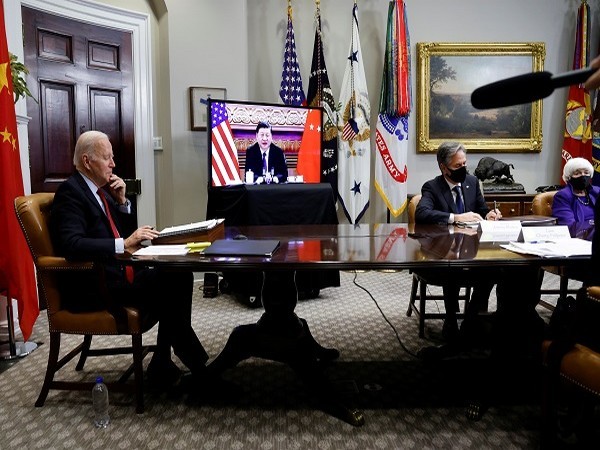In a recent summit between Chinese President Xi Jinping and U.S. President Joe Biden, Xi delivered a blunt message….China will reunify with Taiwan, but the timing remains uncertain. The revelation has sparked concerns about the potential for a major conflict, raising questions about the historical context, implications, and the possibility of another large scale war.
Historical Background:
The relationship between China and Taiwan is complex and rooted in historical events. After the Chinese Civil War (1927-1949), the Nationalist government, led by Chiang Kai-shek, fled to Taiwan, establishing the Republic of China. Meanwhile, the Communist Party, led by Mao Zedong, established the People’s Republic of China on the mainland. Since then, both entities have claimed to be the legitimate government of China.
The Unfinished Business:
China’s push for reunification with Taiwan is not a new development, but President Xi’s recent assertion has escalated tensions. China’s preference for a peaceful reunification is reiterated, yet the aggressive stance raises concerns. The insistence on the U.S. publicly supporting China’s goal and rejecting Taiwanese independence underscores the gravity of the situation.
The Summit and Unnerving Revelations:
During the summit, Xi expressed concerns about Taiwan’s upcoming presidential election, emphasizing the influence the U.S. wields over the island. The Chinese leader’s candor, coupled with his assertion that a timeline for reunification has not been set, has left U.S. officials uneasy. The revelation comes at a time when China’s actions toward Taiwan are perceived as increasingly assertive.
Implications for War:
The specter of war looms large over the Taiwan Strait. Xi’s commitment to reunification, even by force if necessary, is a departure from previous diplomatic posturing. The potential for military conflict raises alarms globally, as evidenced by Sen. Lindsey Graham’s call for bipartisan action to deter China and implement pre invasion sanctions.
Economic Ambitions vs. Military Aggression:
Xi’s goal of doubling China’s economy by 2035 adds complexity to the situation. While some experts doubt China would risk a military conflict that could derail economic progress, Xi’s commitment to reunification, irrespective of Taiwan’s declaration of independence, introduces a potential clash between economic ambitions and military aggression.
U.S. Response and Intelligence Concerns:
The U.S. response to Xi’s warning has been cautious. Biden, reiterating the “One China” policy, remains committed to maintaining the status quo. However, CIA Director William Burns has highlighted U.S. intelligence indicating Xi’s directive to prepare for a potential invasion by 2027. The discrepancy between public statements and intelligence reports adds to the uncertainty.
Conclusion:
The issue of Taiwan remains a powder keg in international relations, with the potential to reshape the geopolitical landscape. As China asserts its desire for reunification, the world watches closely, recognizing the delicate balance between economic ambitions and the specter of war. The U.S. and its allies face the challenge of navigating this complex situation, striving to maintain peace while preparing for the possibility of conflict.

